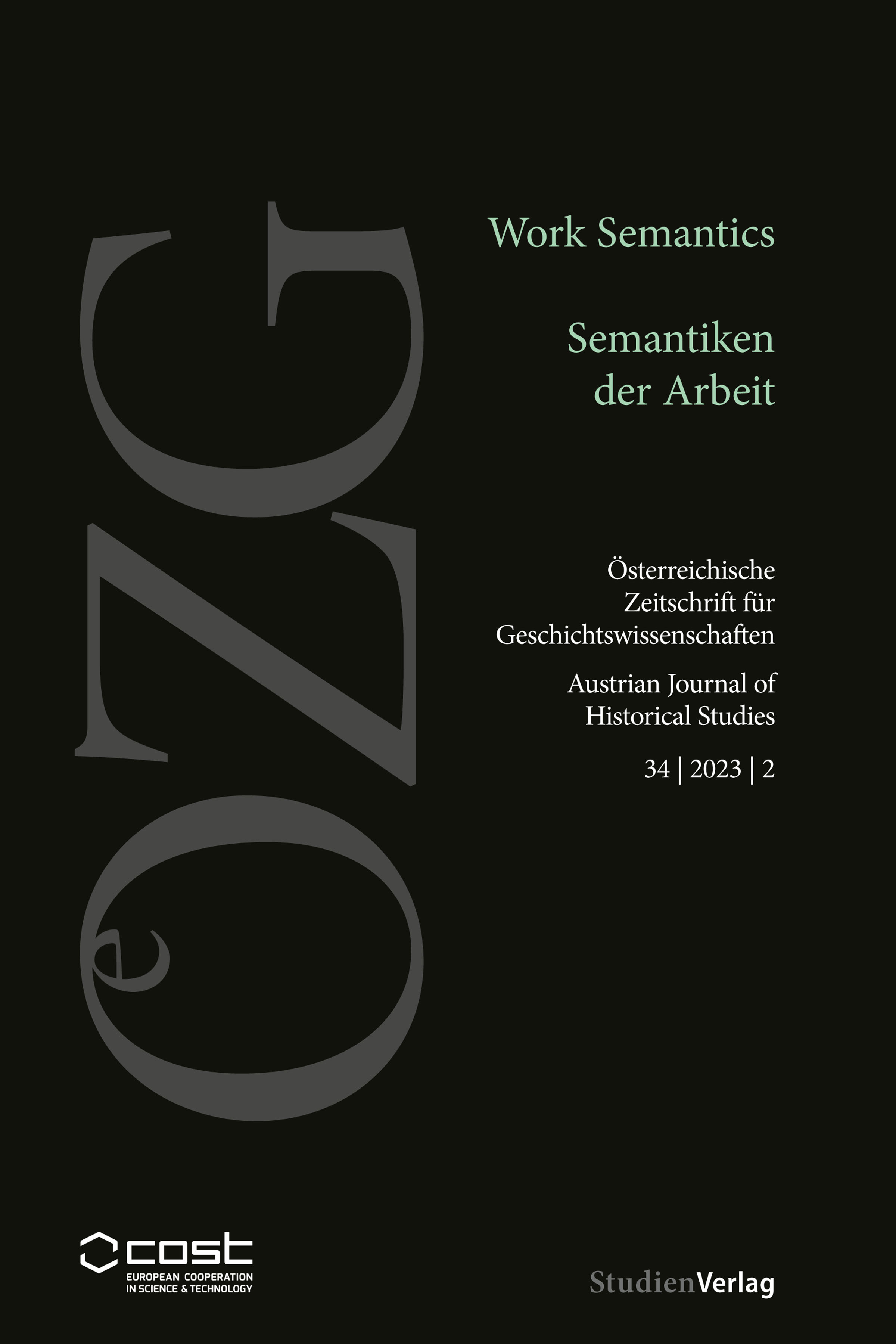“I certainly wouldn’t call it work anymore”. The Reconfiguration of Work in Italy during the 1970s from a Historical Semantics Perspective
DOI:
https://doi.org/10.25365/oezg-2023-34-2-9Schlagworte:
Italy 1970s, historical semantical approach, labour reconfiguration, flexibilisation of work, post-operaismus, historical trend research, Italian social movementAbstract
Using an onomasiological, document-centred historical semantic approach, this paper focuses on the reconfiguration of labour in Italian society during the 1970s and 1980s. This is analysed both at the level of discourse and at the level of the performative changes that the development of a new semantics of labour, coercion, and freedom entailed. At the end of the 1970s, with the onset of the post-boom crisis, the rejection of regulated labour and the theorisation of its liberation through precarisation and flexibilisation became part of a cultural and social semantics for the young generation of workers entering the wage labour system. Their motto was “freeing labour to free life from labour”. Through both a quantitative and qualitative historical semantic analysis of the sources, this contribution examines the medium- and long-term impacts of this reconfiguration on the practices of regulated and controlled wage labour. It also aims to offer an initial reflection on the use of the historical semantic approach for contemporary history and its possible – or rather, necessary – differentiation from other forms of discourse analysis.
Downloads
Veröffentlicht
Zitationsvorschlag
Ausgabe
Rubrik
Lizenz
Copyright (c) 2023 Österreichische Zeitschrift für Geschichtswissenschaften

Dieses Werk steht unter der Lizenz Creative Commons Namensnennung 4.0 International.


